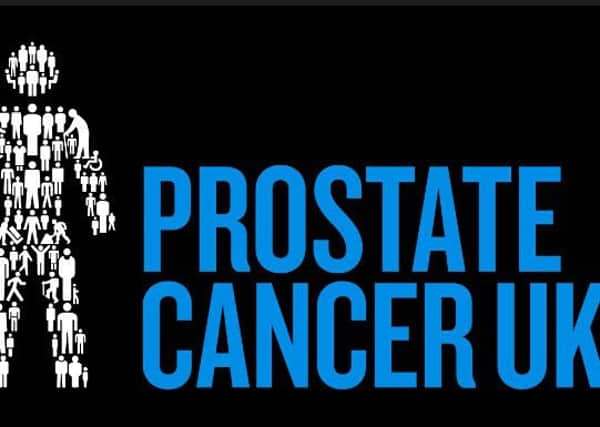Prostate cancer awareness


In this article, we explain what prostate cancer is, how it is treated and where to find support and advice if you are living in the Western Isles.
How common is
prostate cancer?
Prostate cancer is the most common cancer in men in the UK. According to Prostate Cancer UK, each year in Scotland over 3,000 men are diagnosed with prostate cancer and 850 men die from it. Local statistics show that, from 2009 to 2013 in the Western Isles, there were around 25 new diagnoses of prostate cancer each year.
Advertisement
Hide AdAdvertisement
Hide AdIf you are a man living in Scotland, you have a one in 11 chance of getting prostate cancer and the risk increases if you are over 50, if you are black or if your father or brother has got it.
What is prostate cancer?
Only men have a prostate gland. The prostate is approximately the size of a walnut and sits just below the bladder. Prostate cancer can develop when cells in the prostate start to grow in an uncontrolled way.
It is however important to be aware that most men with early stage prostate cancer don’t have any symptoms, which is why awareness of the risks is so important.
If you are suffering with urinary symptoms it is a good idea to get checked out by your GP, for example, if you have any of the following problems:
Advertisement
Hide AdAdvertisement
Hide AdNeeding to go to the toilet quickly, without warning or taking longer to empty your bladder, with a weak flow of urine, also passing urine more often, especially at night. If you have difficulty starting to pass urine or stopping and starting when you are passing urine.
Your GP will ask you health questions, examine you and perhaps arrange for a urine and/or blood test.
If the GP is unsure what is causing your problems, they may refer you to a urologist.
How is prostate
cancer diagnosed?
A blood test called the Prostate Specific Antigen (PSA) test is used to see if you have prostate problems. A high PSA test may show that you have a problem with your prostate, but not necessarily cancer. This is because a number of things can cause your PSA level to rise – including age, an enlarged prostate, infection, vigorous exercise and recent sex.
Advertisement
Hide AdAdvertisement
Hide AdIf you have a high PSA reading you may be sent for further tests such as a biopsy. A pathologist will examine the biopsy samples to see if they are cancerous or not.
The samples and scans help the urologist decide if you have cancer, how aggressive it is and how far it has spread.
What happens next?
There are different treatments for prostate cancer, depending on how far it has spread and how aggressive the cancer is, and you may be asked to choose which one you’d prefer.
If prostate cancer is detected early and is confined to the prostate, you are usually offered treatment to cure the cancer such a surgery or radiotherapy – monitoring the cancer may also be an option. If it has spread beyond the prostate, for example to your bones, the treatment is aimed at controlling the cancer rather than curing it.
Advertisement
Hide AdAdvertisement
Hide AdDeciding on the right treatment can be confusing. You will need time to get advice from health professionals before making a decision.
This is important because treatments for prostate cancer can have side-effects which may affect you, sometimes for life. These can include incontinence and effects on your sex life.
After treatment
When you have been diagnosed with prostate cancer, whether or not you have treatment, you should have regular check-ups, including PSA blood tests, to make sure that your cancer has been cured or is under control.
Immediately after your treatment, you are will be followed up by the specialists on the mainland until they are happy that your condition is stable.
Advertisement
Hide AdAdvertisement
Hide AdYour care is then handed over to your local GP and practice team so they can monitor your progress for the next few years. Many men, and their families, find the time after treatment just as stressful as when they found out they had cancer.
What support can I get?
The Hebridean Men’s Cancer Support Group meets weekly in Stornoway and is an excellent way of meeting other men who are having, or have had, a similar experience to you. Contact: www.hebmenscancer.com; Barra Cancer Support Group for those affected by cancer in Barra. Contact: through facebook; Uist Cancer Support Forum. Contact: through facebook
RelationshipsScotland, based in Stornoway but covers all of Western Isles. If you are having relationship difficulties because of your prostate cancer, you are entitled to 10 free sessions with a trained counsellor, contact 01851 705600.
For specific support and advice about prostate cancer in the Western Isles, contact Martin Hall, Prostate Cancer Nurse on 01851 762024 or [email protected]
Prostate Cancer UK also has a very helpful website at prostatecanceruk.org.